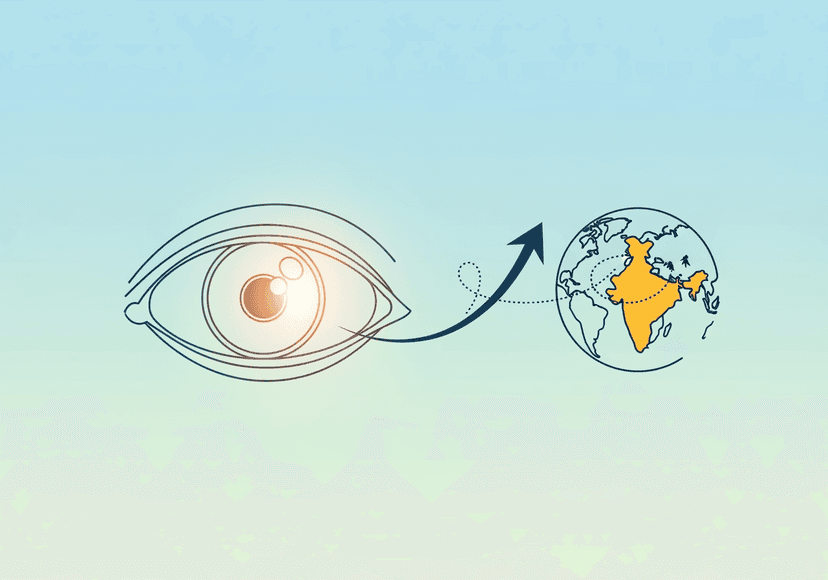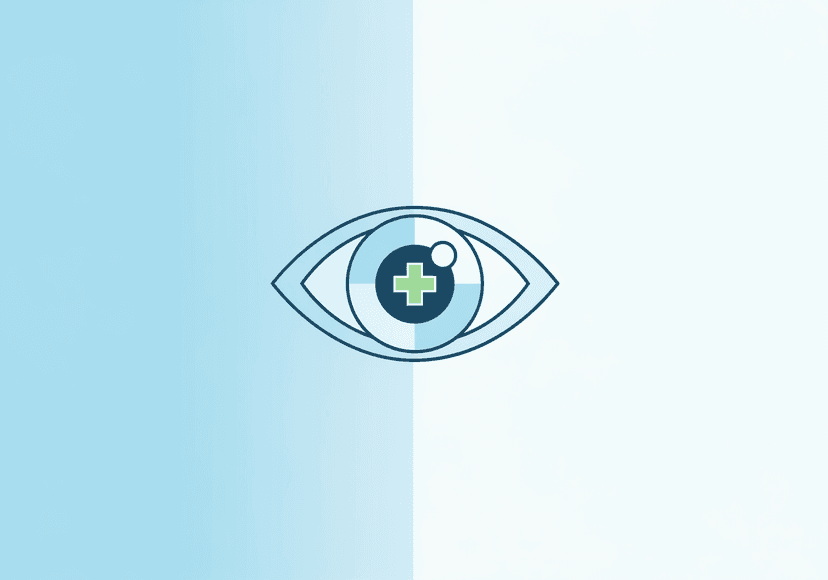
How Nepalese Patients Can Access Advanced Healthcare in India – 2025 Insights
09 Jul, 2025
 Healthtrip
Healthtrip- Why India for Advanced Healthcare: A 2025 Perspective
- Specialized Treatments Available in India: A Focus on Key Areas < li>Top Indian Hospitals for Nepalese Patients: Services and Expertise
- Understanding the Costs: Budgeting for Healthcare in India
- Navigating the Indian Healthcare System: A Step-by-Step Guide for Nepalese Patients
- Success Stories: Nepalese Patients Benefiting from Indian Healthcare < li>Addressing Challenges and Finding Solutions for Nepalese Patients
- The Future of Indo-Nepal Healthcare Collaboration
- Conclusion
Understanding the Healthcare Landscape in India
India has rapidly emerged as a global healthcare hub, boasting state-of-the-art medical facilities and highly skilled doctors, many of whom have international training and experience. The cost of treatment in India is also significantly lower compared to Western countries, making it an attractive option for Nepalese patients seeking quality care without breaking the bank. Hospitals like Fortis Escorts Heart Institute and Max Healthcare Saket in Delhi, and Fortis Memorial Research Institute, Gurgaon, have become popular destinations for international patients, offering specialized treatments in cardiology, oncology, orthopedics, and more. For Nepalese patients, this means access to a broader range of medical expertise and technologies that might not be available back home. With Healthtrip, you can connect with these renowned hospitals and doctors, streamlining your access to quality healthcare.Most popular procedures in India
Choosing the Right Hospital and Specialist
Selecting the right hospital and specialist is paramount for a successful medical journey. It requires careful research and understanding of your specific medical needs. Begin by identifying the top hospitals in India that specialize in your condition. Fortis Hospital, Noida, for example, is well-regarded for its comprehensive cancer care, while hospitals under the Max Healthcare umbrella, such as Max Healthcare Saket, offer advanced cardiac and neurological treatments. Look into the credentials and experience of the doctors at these facilities. Are they board-certified? Do they have experience treating patients with your specific condition? Platforms like Healthtrip provide detailed profiles of doctors, including their qualifications, specializations, and patient reviews, helping you make an informed choice. Don't hesitate to seek second opinions and ask questions to ensure you feel confident in your chosen medical team. Remember, your health is the priority.Navigating the Logistics: Visa, Travel, and Accommodation
Planning a medical trip involves more than just identifying the right hospital; it requires meticulous attention to logistical details. Securing a medical visa is the first step, and it typically requires a letter from the Indian hospital confirming your treatment. Healthtrip can assist you in obtaining this crucial documentation. Once you have your visa, you'll need to arrange travel and accommodation. Consider booking flights and hotels well in advance to secure the best deals. Many hospitals, including Fortis Shalimar Bagh, have tie-ups with nearby hotels that offer discounted rates for patients and their families. It's also wise to familiarize yourself with local transportation options in the city where you'll be receiving treatment. Healthtrip can further alleviate these burdens by providing transportation and accommodation through its partner hospitals.Wellness Treatments
Give yourself the time to relax
Lowest Prices Guaranteed!

Lowest Prices Guaranteed!
Understanding Treatment Costs and Insurance
One of the biggest concerns for Nepalese patients seeking medical treatment in India is the cost. While treatment in India is generally more affordable than in Western countries, it's essential to have a clear understanding of the expenses involved. Obtain a detailed cost estimate from the hospital beforehand, including charges for consultation, tests, procedures, medication, and accommodation. Enquire about payment options and whether the hospital accepts international insurance. Unfortunately, most health insurance policies in Nepal do not cover medical treatment abroad, but it's worth checking with your insurance provider to see if they have any special provisions. If you're paying out of pocket, consider exploring medical loans or crowdfunding to help cover the costs. Healthtrip will give you personalized information so that you can plan out your healthcare journey.Post-Treatment Care and Follow-Up
Your medical journey doesn't end when you leave the hospital. Post-treatment care and follow-up are crucial for ensuring a successful recovery. Before returning to Nepal, discuss the post-operative care plan with your doctor. Understand the medication schedule, wound care instructions, and any lifestyle modifications you need to make. Some hospitals, such as those in the Max Healthcare network, offer telemedicine consultations, allowing you to continue to communicate with your doctor remotely. If you require ongoing care in Nepal, ask your doctor to coordinate with a local physician to ensure a smooth transition. Staying proactive and maintaining good communication with your medical team will significantly enhance your chances of a full recovery. Healthtrip will keep up with you after treatment to make sure you are well on your way to full health.Why India for Advanced Healthcare: A 2025 Perspective
For many Nepalese individuals and families, the quest for superior healthcare solutions often leads south, across the border into India. As we approach 2025, this trend isn't showing signs of slowing down; in fact, it's gaining momentum. But what exactly makes India such an attractive destination for advanced medical treatments? The answer is multifaceted, encompassing factors like accessibility, cost-effectiveness, and the presence of world-class medical facilities. India has rapidly emerged as a global healthcare hub, driven by investments in cutting-edge technology, highly skilled medical professionals, and a patient-centric approach. For Nepalese patients, this translates to access to treatments and procedures that might not be readily available or as advanced in their home country. Think of it as a neighbor offering a helping hand, equipped with the latest tools and expertise to address your health concerns. Moreover, the cultural and linguistic similarities between the two nations often ease the transition and reduce anxieties associated with seeking medical treatment in a foreign land. Healthtrip plays a crucial role in facilitating this journey, connecting Nepalese patients with the best Indian hospitals and ensuring a smooth and comfortable experience from start to finish. We understand the unique needs and concerns of our clients, providing personalized guidance and support every step of the way, making advanced healthcare in India not just a possibility, but a reality.
The Accessibility Advantage
One of the foremost reasons India remains a preferred healthcare destination for Nepalese patients is its geographical proximity and relatively easy accessibility. Unlike traveling to distant countries like the United States or Europe, reaching India is a much simpler and more affordable affair. Regular flights and well-established land routes connect Nepal to various Indian cities, reducing both travel time and expenses. This is particularly crucial for patients requiring frequent follow-up appointments or ongoing treatment. Imagine the peace of mind knowing that you can reach your doctor or medical facility in a matter of hours, rather than days. Furthermore, the visa process for Nepalese citizens seeking medical treatment in India is often streamlined, further easing the journey. Beyond logistical ease, accessibility also extends to communication and cultural understanding. Many Indian doctors and healthcare professionals are familiar with the specific health challenges and cultural nuances of Nepalese patients, fostering a more comfortable and trusting environment. This familiarity helps bridge the gap between patient and provider, ensuring that diagnoses are accurate and treatments are tailored to individual needs. Healthtrip leverages this advantage by providing translation services and cultural sensitivity training to our staff, ensuring that every patient feels understood and respected throughout their healthcare journey in India. We act as your cultural liaison, navigating the complexities of a foreign healthcare system and ensuring that your voice is heard.
Specialized Treatments Available in India: A Focus on Key Areas
India's healthcare landscape is increasingly renowned for its specialized treatments, offering a range of advanced medical interventions that cater to diverse health needs. From complex cardiac surgeries to cutting-edge cancer therapies and intricate orthopedic procedures, Indian hospitals are equipped with state-of-the-art technology and staffed by highly skilled specialists. This is particularly significant for Nepalese patients seeking treatments that may not be readily available or as advanced in their home country. The allure of India lies not just in the availability of these treatments, but also in the expertise and experience of the medical professionals who administer them. Many Indian doctors have trained in renowned medical institutions worldwide, bringing back with them a wealth of knowledge and skills. They are adept at handling complex cases and utilizing the latest medical advancements to achieve optimal patient outcomes. Consider the field of organ transplantation, where Indian hospitals have achieved remarkable success rates, attracting patients from across the globe. Or the area of minimally invasive surgery, where Indian surgeons are pioneers in utilizing advanced techniques to reduce pain, speed up recovery, and minimize scarring. Through Healthtrip, Nepalese patients can access this wide spectrum of specialized treatments, ensuring that they receive the best possible care for their specific medical conditions. We connect you with the right specialists, facilitate consultations, and guide you through every step of the treatment process.
Cardiac Care
Cardiac care in India has witnessed significant advancements over the past few decades, establishing the country as a leading destination for heart-related treatments. Indian hospitals offer a comprehensive range of cardiac services, from routine check-ups and diagnostic tests to complex surgeries like bypass grafting, valve replacements, and heart transplants. The availability of advanced technologies such as robotic surgery, transcatheter aortic valve implantation (TAVI), and advanced cardiac imaging further enhances the quality of care. For Nepalese patients facing heart ailments, accessing these specialized cardiac treatments in India can be life-changing. Whether it's a congenital heart defect requiring surgical correction or coronary artery disease necessitating bypass surgery, Indian hospitals offer a viable and often more affordable alternative compared to Western countries. Moreover, the expertise of Indian cardiologists and cardiac surgeons is highly regarded, with many having trained at prestigious medical institutions. They are adept at diagnosing and treating a wide range of cardiac conditions, utilizing the latest techniques and technologies. Healthtrip can assist Nepalese patients in finding the best cardiac specialists and hospitals in India, ensuring that they receive personalized care and the most appropriate treatment plan. For instance, Fortis Memorial Research Institute, Gurgaon is known for its comprehensive cardiac care.
Oncology
Cancer treatment in India has undergone a dramatic transformation in recent years, with the emergence of advanced therapies and a growing focus on personalized cancer care. Indian hospitals offer a wide spectrum of oncological services, including chemotherapy, radiation therapy, surgery, and targeted therapies. The availability of cutting-edge technologies like proton therapy, robotic surgery, and advanced imaging techniques further enhances the precision and effectiveness of cancer treatment. For Nepalese patients battling cancer, accessing these specialized oncological services in India can be a beacon of hope. Whether it's breast cancer, lung cancer, or leukemia, Indian hospitals offer a multidisciplinary approach to cancer care, involving a team of oncologists, surgeons, radiation therapists, and other specialists. This collaborative approach ensures that patients receive comprehensive and coordinated care, tailored to their individual needs. Furthermore, the cost of cancer treatment in India is often significantly lower than in Western countries, making it a more accessible option for many Nepalese patients. Hospitals like Max Healthcare Saket provide comprehensive cancer treatment options. Healthtrip can facilitate the entire process, from connecting you with leading oncologists to arranging accommodation and transportation, ensuring a stress-free and supportive experience.
Orthopedics
Orthopedic care in India has evolved into a sophisticated field, offering a wide range of treatments for musculoskeletal conditions, from joint replacements to sports injuries and spinal disorders. Indian orthopedic surgeons are highly skilled in performing complex procedures, utilizing the latest techniques and technologies. The availability of advanced imaging techniques like MRI and CT scans, coupled with the use of minimally invasive surgical approaches, allows for more precise diagnoses and less invasive treatments. For Nepalese patients suffering from orthopedic problems, accessing specialized orthopedic care in India can significantly improve their quality of life. Whether it's osteoarthritis requiring a joint replacement or a spinal injury necessitating surgery, Indian hospitals offer a comprehensive range of orthopedic services. Moreover, the cost of orthopedic procedures in India is often significantly lower than in Western countries, making it a more affordable option for many Nepalese patients. Fortis Shalimar Bagh is known for its orthopedic services. Healthtrip can connect you with experienced orthopedic surgeons, assist with travel arrangements, and provide ongoing support throughout your orthopedic journey in India.
Top Indian Hospitals for Nepalese Patients: Services and Expertise
India boasts a plethora of world-class hospitals that have earned international acclaim for their exceptional medical services, cutting-edge technologies, and highly skilled medical professionals. These hospitals have become magnets for patients from across the globe, including a significant number from Nepal, seeking advanced and affordable healthcare. However, navigating this vast landscape of healthcare providers can be daunting. It’s essential to identify hospitals that not only possess the necessary infrastructure and expertise but also cater specifically to the needs and preferences of international patients, particularly those from Nepal. Key factors to consider when choosing a hospital include its accreditation, the availability of specialized treatments, the experience of its medical staff, the quality of its patient care services, and its track record of successful outcomes. Moreover, cultural sensitivity and the availability of language support can significantly enhance the patient experience. Healthtrip understands these nuances and has carefully curated a network of top Indian hospitals that meet these stringent criteria. We prioritize hospitals that have a proven commitment to providing exceptional care to international patients, with dedicated international patient departments, multilingual staff, and a deep understanding of cultural differences. Our goal is to connect Nepalese patients with hospitals that not only offer the best medical treatments but also provide a comfortable, supportive, and culturally sensitive environment.
Fortis Healthcare
Fortis Healthcare is a renowned hospital group in India, known for its commitment to excellence, innovation, and patient-centric care. With a network of hospitals across the country, Fortis offers a wide range of medical specialties, from cardiology and oncology to orthopedics and neurology. Fortis hospitals are equipped with state-of-the-art technology, staffed by highly experienced doctors and nurses, and accredited by leading international organizations. For Nepalese patients seeking quality healthcare in India, Fortis Healthcare presents a compelling option. The hospital group has a strong track record of treating international patients, with dedicated international patient departments that provide personalized assistance with everything from visa applications and accommodation to translation services and cultural support. Furthermore, Fortis hospitals have a reputation for innovation, constantly adopting the latest medical advancements and techniques to improve patient outcomes. For example, Fortis Memorial Research Institute, Gurgaon, is a leading center for cardiac care, while Fortis Hospital, Noida, is known for its expertise in neurosciences. Through Healthtrip, Nepalese patients can easily access the expertise of Fortis Healthcare, ensuring that they receive the best possible care in a comfortable and supportive environment. We work closely with Fortis hospitals to streamline the referral process, arrange consultations, and provide ongoing support throughout the patient's treatment journey.
Max Healthcare
Max Healthcare is another leading hospital group in India, recognized for its commitment to clinical excellence, patient safety, and ethical practices. With a network of hospitals across Delhi NCR and other parts of India, Max Healthcare offers a comprehensive range of medical services, from primary care to advanced surgical procedures. Max hospitals are equipped with cutting-edge technology, staffed by highly qualified doctors and nurses, and accredited by national and international organizations. For Nepalese patients considering medical treatment in India, Max Healthcare offers a trusted and reliable option. The hospital group has a strong focus on patient satisfaction, providing personalized care and attention to every individual. Max hospitals have dedicated international patient departments that cater to the specific needs of foreign patients, offering services such as visa assistance, airport transfers, language interpretation, and cultural support. Moreover, Max Healthcare has a reputation for clinical excellence, with many of its doctors being recognized as leaders in their respective fields. For instance, Max Healthcare Saket is known for its comprehensive cancer treatment options. Healthtrip partners with Max Healthcare to ensure that Nepalese patients receive seamless access to its world-class medical services, providing personalized support and guidance throughout the entire treatment process.
Also Read:
Understanding the Costs: Budgeting for Healthcare in India
Planning for medical treatment in a foreign country involves careful consideration of the financial aspect. Budgeting for healthcare in India as a Nepalese patient goes beyond just the cost of the procedure itself. It encompasses a range of expenses, including pre-treatment consultations, diagnostic tests, hospital stay, medication, post-operative care, travel, accommodation, food, and incidental expenses. A detailed breakdown of these costs is essential for effective financial planning. For instance, the cost of the primary treatment can vary significantly depending on the complexity of the case, the type of procedure, and the hospital chosen. Hospitals like Fortis Escorts Heart Institute and Max Healthcare Saket in Delhi offer world-class facilities, but their pricing structures might differ. It's crucial to obtain detailed cost estimates from multiple hospitals. Don't forget the expenses associated with travel – flights, visas, and local transportation. Accommodation costs can range from budget-friendly guesthouses to luxury hotels, depending on your preference and budget. Food expenses can also vary. You can typically find affordable and hygienic food options near most hospitals. Remember to factor in potential unforeseen expenses. It's always wise to add a contingency fund to your budget to cover any unexpected medical complications, extended hospital stays, or additional tests that might be required.
When comparing the cost of healthcare in India versus other countries, you'll find that India often offers a more affordable option without compromising on the quality of care. For example, a heart bypass surgery in India might cost significantly less than in the United States or the United Kingdom. This cost-effectiveness is a major draw for international patients. However, be wary of extremely low-priced packages that might compromise on quality or include hidden costs. Transparency in pricing is key. Healthtrip can assist you in obtaining transparent cost estimates from reputable hospitals and help you navigate the financial aspects of your medical journey. They provide information on potential discounts, payment options, and insurance coverage, if applicable. Understanding the complete cost picture empowers you to make informed decisions and plan your budget effectively.
Navigating the Indian Healthcare System: A Step-by-Step Guide for Nepalese Patients
Navigating a foreign healthcare system can feel overwhelming, but with the right guidance, Nepalese patients can seamlessly access quality medical care in India. The first step is to identify a medical need and seek initial consultations with doctors, either at home or through Healthtrip's telemedicine services, to determine the best course of action. Once you've decided on India, research hospitals specializing in your condition. Consider hospitals like Fortis Memorial Research Institute, Gurgaon or Fortis Hospital, Noida, known for their specialized departments and international patient services. Healthtrip can assist you in shortlisting suitable hospitals based on your medical requirements and budget. Next, gather all your medical records, including diagnostic reports, prescriptions, and doctor's notes, and have them translated into English, if necessary. This documentation is crucial for Indian doctors to understand your medical history and plan the treatment effectively. Apply for a medical visa, which requires a letter from the Indian hospital confirming your admission and treatment plan. Healthtrip can provide assistance with the visa application process. Upon arrival in India, Healthtrip's patient care coordinators will provide support with airport transfers, accommodation arrangements, and hospital registration.
During your treatment, maintain open communication with your doctors and nurses. Don’t hesitate to ask questions and clarify any doubts you might have. Language barriers can sometimes be a challenge, but Healthtrip provides interpreters to facilitate communication. After the treatment, ensure you receive a detailed discharge summary and prescriptions for follow-up medications. Plan for post-operative care, which might include physiotherapy or regular check-ups. Healthtrip can assist with arranging follow-up appointments and coordinating with your local doctor in Nepal. Finally, take time to explore the city and experience the local culture, if your health permits. This can be a great way to de-stress and rejuvenate after the treatment. Remember to keep all your medical records and receipts organized for insurance claims and future reference. With proper planning and support from Healthtrip, your medical journey in India can be a smooth and successful one.
Also Read:
Success Stories: Nepalese Patients Benefiting from Indian Healthcare
Real-life stories of Nepalese patients who have successfully undergone treatment in India serve as powerful testaments to the quality and accessibility of healthcare available. Sharing these experiences builds confidence and provides hope for others seeking similar treatments. Imagine a patient from Kathmandu, suffering from a complex heart condition, finding a new lease on life after undergoing a successful heart surgery at Fortis Escorts Heart Institute. Or consider a young child with leukemia, receiving life-saving treatment at Max Healthcare Saket, with the support of dedicated doctors and nurses. These stories highlight the compassionate care and advanced medical expertise available in India. These success stories are not just about medical procedures; they're about restoring hope, providing relief, and improving the quality of life for individuals and their families. Healthtrip plays a crucial role in facilitating these positive outcomes by connecting patients with the right hospitals and doctors, providing logistical support, and ensuring a smooth and stress-free experience. By sharing these stories, Healthtrip aims to inspire trust and encourage more Nepalese patients to explore the possibilities of medical treatment in India.
These narratives often detail not just the medical aspects but also the emotional journey of the patients and their families. They showcase the cultural sensitivity and personalized care provided by Indian hospitals, which contribute significantly to the overall healing process. Hearing about patients who overcame seemingly insurmountable health challenges after receiving treatment in India can be incredibly reassuring for those contemplating similar medical journeys. Healthtrip's platform often features patient testimonials and case studies, offering valuable insights into the treatment process, the facilities available, and the overall experience of seeking healthcare in India. These stories serve as a valuable resource for prospective patients, helping them make informed decisions and approach their treatment with confidence and optimism. They demonstrate that with the right medical care and support, positive outcomes are achievable, even in the face of complex health conditions.
Addressing Challenges and Finding Solutions for Nepalese Patients
While medical tourism to India offers numerous benefits for Nepalese patients, certain challenges need to be addressed to ensure a seamless and positive experience. One significant hurdle is the language barrier. While English is commonly spoken in Indian hospitals, not all patients and their families might be fluent. This can lead to communication difficulties and misunderstandings. Healthtrip addresses this by providing access to qualified interpreters who can facilitate clear and accurate communication between patients and medical staff. Another challenge is navigating the complexities of the Indian healthcare system, which can be unfamiliar to international patients. Healthtrip simplifies this process by offering comprehensive support services, including assistance with hospital selection, appointment scheduling, visa application, and travel arrangements. Financial constraints can also be a concern for some patients. Healthtrip works with hospitals to negotiate affordable treatment packages and provides information on potential financial assistance options. Cultural differences and dietary restrictions can also pose challenges. Healthtrip helps patients find accommodation and food options that cater to their specific needs and preferences.
Beyond these logistical challenges, emotional and psychological support is also crucial for patients and their families who are undergoing medical treatment in a foreign country. Healthtrip provides access to counseling services and support groups, where patients can connect with others who have had similar experiences. Furthermore, ensuring continuity of care after returning to Nepal is essential. Healthtrip facilitates communication between Indian doctors and local healthcare providers in Nepal to ensure a smooth transition and ongoing management of the patient's condition. By proactively addressing these challenges and providing comprehensive solutions, Healthtrip strives to make medical tourism to India a safe, accessible, and rewarding experience for Nepalese patients. Continuous feedback from patients is used to improve services and ensure that their needs are met effectively. This commitment to patient satisfaction is what sets Healthtrip apart as a trusted facilitator of medical travel.
Also Read:
The Future of Indo-Nepal Healthcare Collaboration
The collaboration between India and Nepal in healthcare is poised for significant growth and evolution in the coming years. Several factors are driving this trend, including increasing demand for specialized medical treatments, advancements in telemedicine and digital health technologies, and growing awareness of the cost-effectiveness and quality of Indian healthcare. In the future, we can expect to see greater integration of healthcare services between the two countries, with more Nepalese patients accessing Indian hospitals and doctors. Telemedicine will play an increasingly important role, enabling remote consultations, diagnosis, and follow-up care. This will be particularly beneficial for patients in remote areas of Nepal who have limited access to specialists. We can also anticipate increased investment in healthcare infrastructure and training in both countries, leading to improved quality and accessibility of care. Healthtrip will continue to play a vital role in facilitating this collaboration, connecting patients with the right healthcare providers, providing logistical support, and ensuring a seamless and positive experience.
Furthermore, there is potential for greater collaboration in medical research and development, with joint efforts to address common health challenges in the region. This could lead to the development of new treatments and technologies that are tailored to the specific needs of the Nepalese and Indian populations. Educational exchange programs for medical professionals will also contribute to improved healthcare standards in both countries. By fostering closer ties and sharing knowledge and resources, India and Nepal can create a stronger and more resilient healthcare system that benefits both nations. The future of Indo-Nepal healthcare collaboration is bright, with immense potential to improve the health and well-being of millions of people.
Conclusion
For Nepalese patients seeking advanced medical care, India presents a compelling option. The combination of world-class hospitals like Fortis Escorts Heart Institute and Max Healthcare Saket, skilled doctors, cost-effective treatments, and relatively easy accessibility makes it an attractive destination. However, navigating a foreign healthcare system can be challenging. This is where Healthtrip steps in, offering invaluable assistance in every step of the journey, from hospital selection and visa assistance to logistical support and post-treatment care. By addressing potential challenges and providing comprehensive solutions, Healthtrip ensures a smooth, safe, and successful medical experience for Nepalese patients in India. As healthcare collaboration between the two countries continues to strengthen, the future looks promising, with even greater opportunities for Nepalese patients to access quality and affordable medical care in India.
Ultimately, the decision to seek medical treatment abroad is a personal one. But with careful planning, reliable support, and access to the right resources, Nepalese patients can confidently choose India as their healthcare destination, knowing that they are in capable and caring hands. Healthtrip is committed to making this journey as easy and stress-free as possible, empowering patients to focus on what matters most: their health and well-being.
Also Read:
Most popular wellness packages
Related Blogs

Long-Term Follow-Up After Eye Surgery
Detailed insights into eye surgery – doctors, hospitals, technology, recovery,

Healthtrip’s Transparency in Eye Surgery Pricing and Packages
Detailed insights into eye surgery – doctors, hospitals, technology, recovery,

Frequently Asked Questions About Eye Surgery
Detailed insights into eye surgery – doctors, hospitals, technology, recovery,

Advanced Robotic Technology Used in Eye Surgery
Detailed insights into eye surgery – doctors, hospitals, technology, recovery,

How Healthtrip Supports Foreign Patients for Eye Surgery in India
Detailed insights into eye surgery – doctors, hospitals, technology, recovery,

Top Medical Packages for Eye Surgery Offered by Healthtrip
Detailed insights into eye surgery – doctors, hospitals, technology, recovery,










